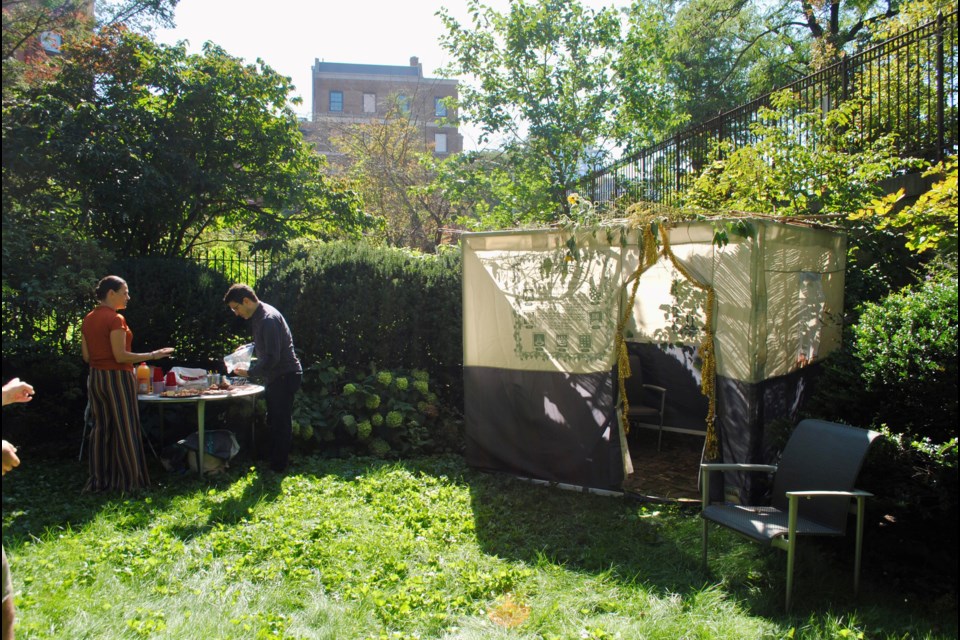Every autumn, Jewish communities build booths in Brooklyn's parks, yards and balconies to celebrate Sukkot, the week-long Jewish harvest holiday that requires participants celebrate in handmade outdoor huts.
In 2023, or 5784 in the Hebrew calendar, Sukkot is celebrated Sept. 29-Oct. 6. The holiday falls five days after Yom Kippur and celebrates how God protected the Israelites as they traveled through the desert for 40 years after escaping from slavery, according to the Torah.
To celebrate, many Jewish people will construct makeshift homes outside called sukkot. These boxy sheds are meant to act as temples, dining rooms and even bedrooms for some Jewish people over the duration of Sukkot.
This year, celebrations were briefly put on hold as storms swept over Brooklyn, but even the flood wasn't enough to destroy the spirit of the celebration, which is traditionally held entirely outdoors.
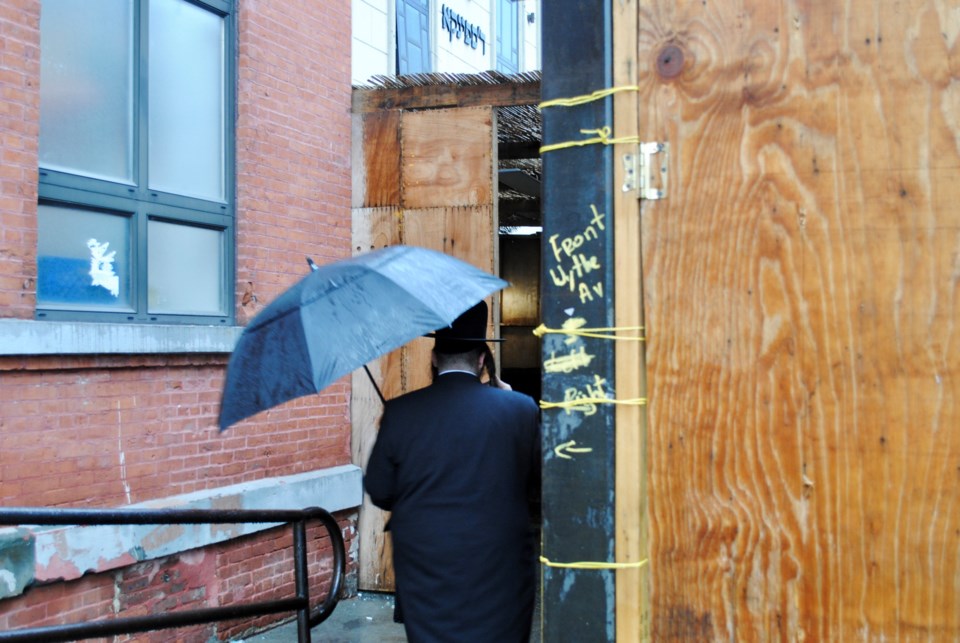
In Park Slope, Congregation Beth Elohim had to cancel its Sukkot Block Party, which was scheduled for Sept. 30. Molly Kane, director of youth programs at CBE, told the BK Reader that the temple had experienced some flooding in the basement of the sanctuary and the pool next door.
Norman Cohen, president of the Kane Street Synagogue congregation, also shared that his synagogue's Sukkot festivities had been pushed back a week.
Still, the holiday wasn't ruined — in fact, the spirit of Sukkot is all about celebrating the fragility of shelter and existence.
"Sukkot anchors us not only in Jewish time, but also in this time of year, and in that feeling of fall," Kane said. "It reminds us that having a place to dwell, having a shelter, is something that we shouldn't take for granted. ... Ironically, you hope that it's going to rain. But you never want it to rain as much as it just did."
Preparations for Sukkot began across Brooklyn on Sept. 28, before the rain began. Traditionally, all sukkah roofs are covered with harvested organic material, like bamboo and foliage, but the interior decoration varies: Some are decorated with paper chains made by children and brightly colored tinsel, and others feature wall hangings with images or prayers written in Hebrew.
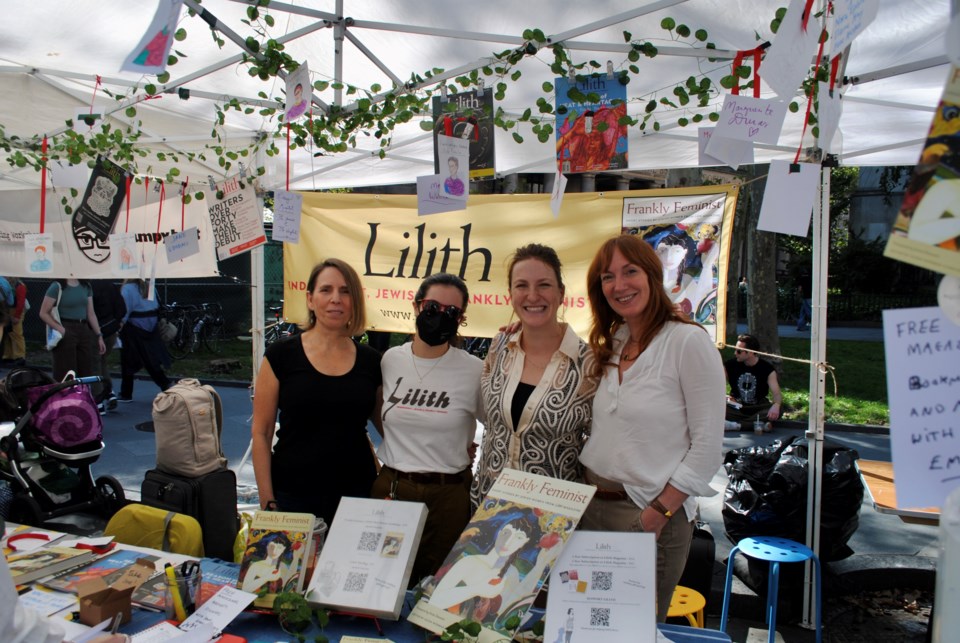
Lilith, a Jewish feminist literary magazine, turned its booth at the Brooklyn Book Festival into a "book-ah." Since the holiday fell on the day of the festival, its owners weren't able to sell magazines or accept money; instead, they decorated their stand with leaves and gave out magazine copies for free. They also asked each person who entered the tent to write down the names and draw pictures of famous feminist writers whom they'd like to invite into the sukkah with them, and hung them from the ceiling.
Dan Klein and Jennifer Breznay, members of Cobble Hill's Kane Street Synagogue, took a similar route. To decorate their garden sukkah, they also made ceiling hangings of names — each visitor that entered was asked to write down the names of loved ones they wished were present on pieces of paper.
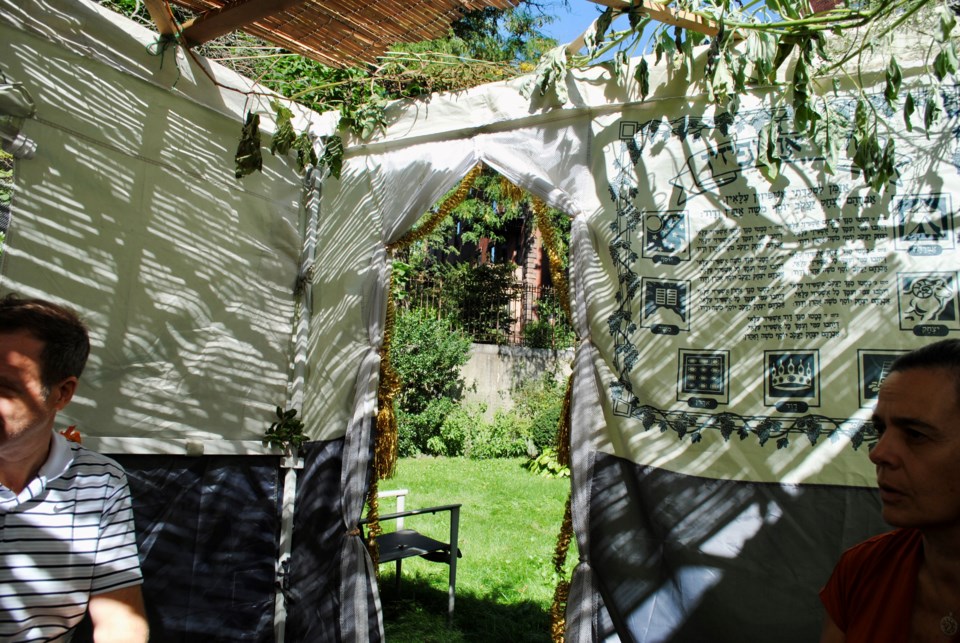
Chanie Baron is part of the Chabad community in Crown Heights. She explained that Jewish people in the Chabad sect don't decorate or sleep in their sukkot, because it is regarded as a holy space, and should not be made more comfortable or beautiful for the worshipper's sake.
"We don't necessarily follow every tradition from this community," she said. "My father is Yemenite, so we grew up decorating the sukkah. I have the happiest memories of building the sukkah with my dad, which is why I was trying to build it with my son."
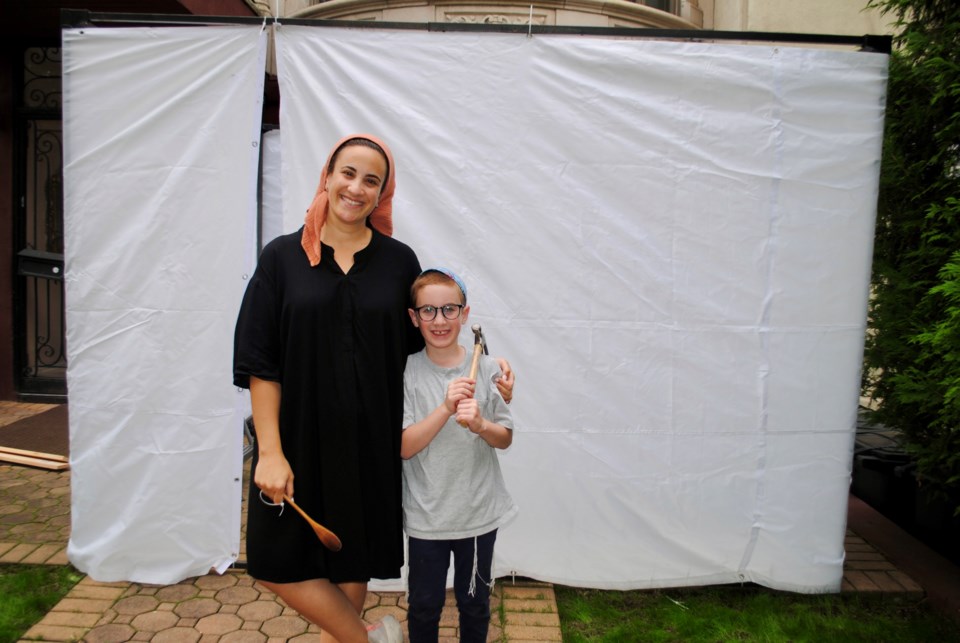
Her son Bentzi, 8, is building his own fond memories of Sukkot. "Last year, we made our sukkah too small," he remembered, laughing. "Everybody had to go over a sandbag to get in."
For many in Brooklyn, it's safe to say that 2023's Sukkot will be another memory that lasts.

